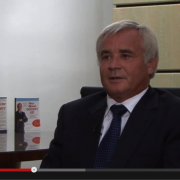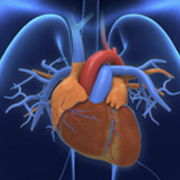Just Exactly What is ‘Restorative Medicine?’
Restorative Medicine treats People – not symptoms or diseases.
Conventional medicine focuses on isolated “symptoms” and “diseases”, through an ever-widening array of specialty drugs and specialist doctors.
Your Human Body is an incredibly complex set of highly interactive systems. Each of these systems is dependent upon the other systems, and all of them are dependent upon your body chemistry. We all know that without the proper vitamins, minerals and nutrients, your body can’t operate properly. But did you know that without the right levels and balance of hormones, your body will begin to develop all of the diseases associated with aging?
As you get older, your hormone levels will naturally drop – dramatically. Unfortunately, it’s like a built-in self-destruct mechanism. The result of that drop is the breakdown of your body.
The word “hormone” is derived from the Greek word hormo, which means “to set in motion.” That’s exactly what hormones do: they regulate, stimulate, and control an endless list of critical tasks and functions, depending on their origin.
Hormones are chemical substances that are manufactured by specialized glands or tissues that produce and secrete them on demand. It’s been said that hormones are the ultimate messengers: these complex chemicals transport information from the brain to the glands, from the glands to the cells, and from the cells back to the brain, so they truly control every part of the body.
Restorative Medicine balances and optimizes overall body chemistry using bioidentical hormones, vitamins, minerals, herbal extracts, probiotics, ‘superfoods’, etc. It is a natural way of returning your physiology to its proper state so that your body can heal itself.
Restorative Medicine is a return to the core value of rebuilding your body chemistry – so that your body has what it needs to repair itself. It’s as simple as you taking some extra Vitamin C to help your immune system – or as complex as every interactive system in your body combined when done by DzLogic.
Restorative Medicine is also often called Physiologic Medicine because Physiology is the study of the proper functioning of the human body. Thus the name “Dzugan PhysioLogic.” It’s just the logical way to go about helping the body heal.
Here’s Dr. Dzugan himself describing Physiologic Medicine and why it is so much better for you than becoming dependent upon drugs that only treat symptoms.
In the next issue, I’ll introduce you to Dr. Dzugan and why I trust him with my life.
Because every person’s body chemistry is different, we work closely with you to develop a personalized program that improves your overall Quality of Life.
Visit our Getting Started page for more information, or give us a call at 1-866-225-4877 today.
DISCLAIMER: This blog is for informational purposes only. It does not replace medical care from a licensed physician. If you have a medical concern, please contact DzLogic at 1-866-225-4877.




